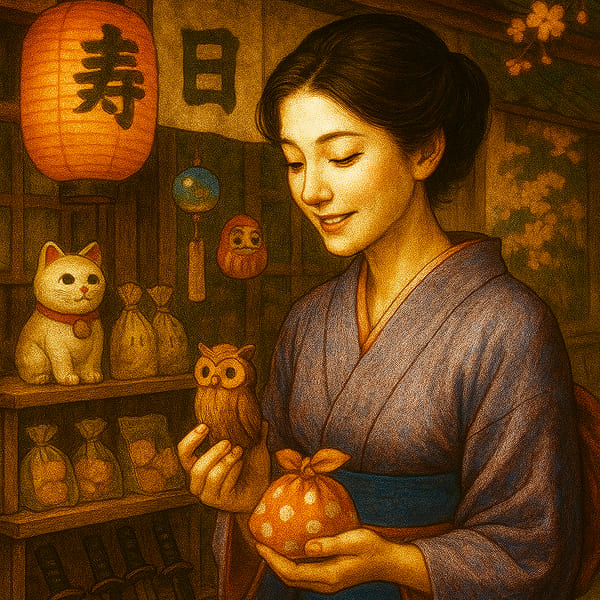Souvenirs in Japan: Heartfelt Gifts That Celebrate Culture and Connection

Contents
A gift wrapped in gratitude, shaped by tradition, and filled with meaning—this is the heart of a Japanese souvenir.
In Japan, souvenirs aren’t just travel mementos. Known as omiyage(お土産), they are thoughtful tokens of appreciation, connecting places, people, and stories. From beautifully packaged sweets to locally crafted treasures, every gift reflects the spirit of the region—and the care of the giver.
Whether you're exploring ancient streets or modern cities, choosing an omiyage is a cultural ritual that turns a journey into a shared memory.
Popular Types of Japanese Souvenirs
| Type | Description |
|---|---|
| Regional Specialties | Local delicacies, traditional crafts, and one-of-a-kind artisanal goods. |
| Food and Sweets | Regional treats, seasonal confections, and popular snacks. |
| Handcrafted Items | Textiles, pottery, and everyday items made using time-honored techniques. |
| Character Goods | Merchandise featuring local mascots or popular tourist attractions. |
Travel Tip: Understanding the background of a region or its specialty store adds depth to your gift and gives it a memorable story for the recipient.
What Japanese Souvenirs Represent
- Gratitude and Appreciation: Thoughtfully selected souvenirs express thanks for support or hospitality.
- Sharing Regional Culture: They allow recipients to experience the unique flavors, designs, or traditions of a specific area.
- Strengthening Relationships: A souvenir is a tangible reminder of thoughtfulness, keeping personal bonds strong even across distances.
When to Give Souvenirs in Japan
-
After Trips: It's customary to bring back omiyage for coworkers, friends, or family when returning from travel.
For example, returning from Hokkaido with boxes of Shiroi Koibito cookies is a beloved gesture in the workplace. -
Celebratory Occasions: Souvenirs make thoughtful gifts for housewarmings, birthdays, or personal milestones.
A regional sake bottle or a locally crafted incense set might be offered at a dinner gathering. -
Small Gestures: Even small, inexpensive items can carry meaning—like gifting a Kyoto-themed bookmark to a friend who loves Japanese literature.
These little surprises show attention and care in everyday life.
Cultural Uniqueness of Japanese Souvenirs
Unlike typical souvenirs in many countries, Japanese omiyage are given with a sense of duty and thoughtfulness.
It's not just about the item—it's about sharing experiences and maintaining social harmony.
This unique aspect of souvenir-giving highlights Japan’s value of connection through meaningful acts.
Modern Trends and the Evolving Souvenir Culture
Today, Japanese souvenirs can be purchased online or discovered through social media.
However, those chosen in person still carry deeper emotional value.
Local governments and artisans continue to innovate with region-specific designs, fostering both tourism and cultural pride.
Final Thoughts
Japanese souvenirs are heartfelt tokens that blend memory, meaning, and cultural richness.
By giving an omiyage, you're not just offering an item—you're sharing a story.
This thoughtful tradition continues to thrive, reflecting the enduring spirit of gratitude in Japanese culture.